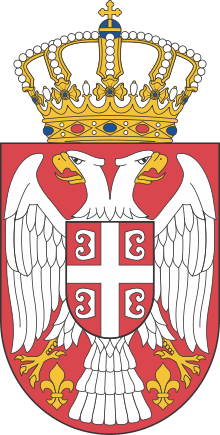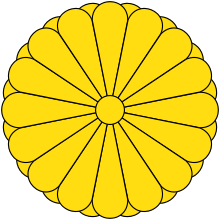Japan–Serbia relations
 |
|
Japan |
Serbia |
|---|---|
Japanese-Serbian relations are the bilateral relations between the countries of Japan and Serbia. Both countries have first signed diplomatic missions on May 20, 1997. Japan has an embassy in Belgrade. Serbia has an embassy in Tokyo and an honorary consulate in Osaka.
History
In the late of 19th century, Japan had emerged from a small, weak island state into a newly Empire, while Serbia gained independence from the Turks and established the Kingdom of Serbia. Through Russia, Serbia had started to settle up a relations with Japan, however, before 1914, both two countries still not have relations officially.
Two World Wars
World War I
At the World War I, after being amazed about the Serbian resistance over the large Austro-Hungarian Army invading Serbia, Japan announced war on the Central Powers late 1914. From here, Japan began to send aids, materials and supplies to Serbia through the Mediterranean Sea and Russia, marked the grow up of the relationship between two countries. Japan also opposed what the called "brutal occupation" by the Austrians and Bulgarians after they invaded Serbia at 1915. After then, Japan focused actions mainly in Asia.
World War II
However, at the World War II, Japan, from the ally of Serbia, now became Kingdom of Yugoslavia, Japan had supported Germany and its ally, making the relationship between two dropped to the lowest in the history. Yugoslav officials in Japan were expelled out from Japan, as Japan maintained a part of the Axis. From here, the struggling relationship between Japan and Serbia started, with many of hostiles between both.
Until Japan's surrender at 1945, Japan and Serbia kept a negative view.
Yugoslavia–Japan relations
Josip Broz Tito assumed power after the collapse of the Kingdom, quickly restored back the relationship with Japan, now was on the losing side. Yugoslavia of Tito was seen as friendly and good with Japan, as Tito, unlike other Communist leaders, did not side with anyone at that time. Japan and Yugoslavia signed the first treaty of friendship in the late 1950s, and their relationship was very good until the collapse of Yugoslavia at 1991.
Trade and aid
Japan is considered one of Serbia's most important trading partners in Asia.[1] One of the most notable interactions between the two countries took place in 2003 when Japan donated 93 city buses to the city of Belgrade.[2]
Japanese influence on Serbian life
There are a large Serbian expats in Japan, whom most of them are football players go to Japan seek for careers. Many of Japanese also develop respects on Serbian people, as for Serbia has been seen as a good friend and further, a place where the most of brave men were born in the Balkans.
There are also few signs of Serbian appearance in Japanese social cultures such as anime and manga. The character Irina Jelavić from Assassination Classroom, is of Serbian descent. Even though Japan were ally with Croatia and Bulgaria at the World War II, and currently ally with Albania which Serbia has disputes, many of Japanese still regard Serbia as one of major ally in the region.
One of famous Serbian slogan "Srbija do Tokija" also attracts many of Japanese people on discovering Serbian history.
Kosovo conflict
Despite having a relationship, Japan, however, had supported Kosovo's independence.
Miscellaneous
The most recent census data records 86 Japanese nationals living in Serbia.[3]
See also
References
External links
- Japan-Serbia relations Ministry of foreign affairs of Japan: Japan-Serbia relations
- Embassy of Japan in Belgrade, Serbia
- Embassy of Serbia in Tokyo, Japan

